Mr. Xabier Agirre Aranburu, Senior Analyst, ICC Office of the Prosecutor, The Netherlands
Xabier Agirre Aranburu is a senior analyst at the Office of the Prosecutor (OTP) of the International Criminal Court (ICC) in The Hague. Previously, he worked as an analyst at the OTP of the UN International Criminal Tribunal for the former Yugoslavia (ICTY) from 1997-2004, on different humanitarian projects in the former Yugoslavia from 1992-1994, and as legal advisor on military issues between 1992-1993. For the last fifteen years, he has worked in the investigation of international crimes, including war crimes, crimes against humanity, and genocide. His work has centered on sexual violence offences, as well as the training of investigators, prosecutors, and judges around the world with the ICC, different UN agencies, International Committee of the Red Cross(ICRC), and a number of universities and NGOs. Agirre Aranburu graduated in Law from the University of the Basque Country, (Spain), and subsequently with a Master’s in Peace Studies from the University of Notre Dame. He was a visiting professor at the Washington School of Law of the American University in 2009, Agirre Aranburu is currently pursuing a PhD in Criminal Law at the University of Leiden, The Netherlands. In 2009, he received the Distinguished Alumni Award of the Kroc Institute for International Peace Studies at the University of Notre Dame.
Ms. Suzan Aref, Founder, Women Empowerment Organization, Iraq
Suzan Aref is the Founder and Director of Women Empowerment Organization (WEO) in Erbil, Iraq, which she founded in 2004, to focus on the expansion of opportunities for women. She also serves as Iraq Advisor for the Global Fund for Women. Previously, she served as the advisor to the Equality and Sustainable Development departments in the Kurdistan regional government Office of the Prime Minister. Her interest and experience has focused on organizational development, capacity building, and activities that strengthen disadvantaged groups, in particular women. Aref has conducted capacity building training for religious leaders to reduce violence against women, and established a business center to support start-ups in developing business plans and obtaining microfinance loans. She was awarded an honorary gift by the Ministry of Human Rights-Kurdistan for her efforts in the area of human and women’s rights. Aref has completed the executive program at Harvard University’s Kennedy School of Government in Private Enterprise Development.
Dr. Kelly Dawn Askin, Senior Legal Officer, Open Society Justice Initiative, USA
Kelly Dawn Askin, PhD is a senior legal officer for International Justice in the Open Society Justice Initiative. Previously, she was the Fulbright New Century Scholar on the Global Empowerment of Women for 2004-2005. For almost 20 years, Askin has taught or served as a visiting scholar at Notre Dame Law School, American University’s Washington College of Law, Harvard’s Kennedy School of Government, Yale Law School, and Oxford University. From 1999-2003, she served as executive director of the International Criminal Justice Institute and American University’s War Crimes Research Office. She has served as a legal advisor to the judges of the International Criminal Tribunal for the former Yugoslavia (ICTY) and for Rwanda (ICTR), and for over fifteen years has also served as an expert consultant, legal advisor, or international law trainer to prosecutors, judges, and registry at the ICTY, the ICTR, the Serious Crimes Unit in East Timor, the International Criminal Court (ICC), the Special Court for Sierra Leone, and the Extraordinary Chambers in the Courts of Cambodia. She also works on efforts to prosecute international crimes in domestic courts, including a mobile gender justice court in eastern Democratic Republic of Congo. In 2005, she was awarded the prestigious Prominent Women in International Law award by the American Society of International Law. Askin serves on the executive board of the American Branch of the International Law Association, the International Judicial Academy, and International Criminal Law Services.
Dr. Maria Eriksson Baaz, Researcher, University of Gothenburg, Sweden
Maria Eriksson Baaz is a researcher with the Peace and Development Research Group within the School of Global Studies at the University of Gothenburg, Sweden. Her work includes research into issues of gender and war; masculinity and militarism; gender and defense and police reform in post conflict contexts; postcolonial theory; and diaspora studies, with focus on the African Diaspora. She is currently conducting research into sexuality and HIV/AIDS among soldiers and combatants in the Democratic Republic of Congo. Baaz received her PhD in Peace and Development Research from the University of Gothenburg, and her Master’s in Development Studies from the University of Gothenburg and the University of Lund, Sweden.
Dr. Gary Barker, Executive Director, Promundo – US, USA
Gary Barker is Executive Director of Instituto Promundo, a Brazilian-based NGO that works locally and internationally to promote gender equality and end violence against women, children, and youth. He has coordinated research and program development on engaging men and boys in gender equality in Africa, Latin America, and Asia, and served as a consultant to the World Bank, World Health Organization (WHO), United States Agency for Development (USAID), The Joint United Nations Programme on HIV/AIDS (UNAIDS), United Nations Children’s Fund (UNICEF), United Nations Population Fund (UNFPA), and the government of Brazil. Barker holds a PhD in Child Development from Loyola University, Chicago, and a Master’s Degree in Public Policy from Duke University.
Ms. Veronica Isala Eragu Bichetero, Director, EDG Venture Consult, Uganda
Veronica Isala Eragu Bichetero is a senior consultant and director of EDG Venture Consult, Kampala, Uganda. She is also a lawyer and an advocate of the Courts of Judicature of Uganda and is involved in a range of issues on women’s rights, children’s rights, vulnerable persons' rights, conflict resolution, and peacebuilding in Africa. Eragu combines her legal work with her role at the World Bank as Gender and Conflict Advisor, in the Learning on Gender in Conflict Affected Areas in Africa (LOGICA) Trust Fund. She is also a consultant in human rights, governance, and rule of law for the United Nations Development Programme (UNDP) and the International Development Law Organization (IDLO). Eragu received her Law Diploma from Makerere University, Kampala. From 2011-12, Eragu served as a Jennings Randolph Senior Fellow at the U.S. Institute of Peace (USIP). Her project focused on promoting women's participation in conflict resolution and peacebuilding in the Great Lakes Region Her experience at the negotiation table and peacemaking forum dates back to 1985 when she contributed at the government of Sierra Leone and the Revolutionary United Front as the UNICEF representative, advocating for the early release of women and children. From 2006, she was involved in the Juba peace process between the government of Uganda and the Lord's Resistance Army, first as a representative of the Human Rights Commission and later at the mediation table providing technical expertise and advice. Eragu has worked in Juba supporting the government of Southern Sudan on post-conflict issues, especially the empowerment of women and human rights.
Mr. Hassan Bility, Executive Director, Global Justice and Research Center, Liberia
Hassan Bility is a prominent Liberian journalist and human rights activist. He was the Editor in Chief of the Analyst Newspaper under the regime of Charles Taylor, was arrested because of his writing and savagely tortured upon Taylor's orders. He testified in several trials, including the RUF and Charles Taylor trials, at the Special Court for Sierra Leone, and the Chuckie Taylor trial in the United States. For years, Bility has been working with Liberian victims of the war, and in 2012, he set up the Justice and Research Project in Monrovia in order to document atrocities against civilians during the two civil wars in Liberia (1989-1996 and 1999-2003). Bility has received several awards including the Press Union of Liberia Best Journalist of the Year Award in 2002, Amnesty International's Human Rights Journalism under Threat Award in 2003, and the Freedom and Human Rights Courage Award in Philadelphia in 2004.
Dr. Jelke Boesten, Senior Lecturer, University of Leeds, United Kingdom
Jelke Boesten is a senior lecturer for social development and human security at the School of Politics and International Studies at the University of Leeds. Her research generally focuses on issues related to gender and social policy, health, the politics of aid, and transitional justice. She received her PhD from the University of Amsterdam. In 2011-12, Boesten was a Jennings Randolph Senior Fellow at the U. S. Institute of Peace. Her research for an upcoming book focused on understanding the meanings of sexual violence at the interface of war and peace in the case of the Peruvian conflict of 1980-1995. The research illustrates how the use of gendered political violence is reflected in 'private' and peacetime violence. The case study is situated in and compared to other cases of gender and state violence in Latin American and rape in war globally.
Dr. Dara Kay Cohen, Assistant Professor, Harvard University, USA
Dara Kay Cohen is an assistant professor of public policy at the John F. Kennedy School of Government at Harvard University. Her research and teaching interests span the field of international relations, including international security, civil war and the dynamics of violence during conflict, and gender and international relations. Her current book project examines the variation in the use of sexual violence during recent civil conflicts; the research for the book draws on fieldwork in Sierra Leone, East Timor, and El Salvador, where she interviewed more than 200 ex-combatants and noncombatants. Cohen graduated with an A.B. in Political Science and philosophy with honors from Brown University in 2001 and her PhD in Political Science from Stanford University in 2010. Prior to joining the Kennedy School, she was an assistant professor at the Humphrey School of Public Affairs at the University of Minnesota.
In 2011, Cohen was awarded the American Political Science Association's Award for Best Dissertation in Women and Politics. She also served as a paralegal in the Outstanding Scholars Program in the Counterterrorism Section of the U.S. Department of Justice from 2001-2003.
Dr. Carol Cohn, Founding Director, Consortium on Gender, Security and Human Rights, USA
Carol Cohn is the founding director of the Consortium on Gender, Security and Human Rights, professor of Women’s Studies at the University of Massachusetts Boston, and visiting professor at the UN University for Peace. She has published widely in the field of gender and security, with a focus on gender and peacekeeping, gender mainstreaming in international security institutions, gender integration issues in the US military, the gender dimensions of weapons of mass destruction discourse, and the ongoing efforts to implement UNSCR 1325 at both international and grassroots levels. Her most recent publication is a textbook, Women and Wars, published by Polity Press.
Dr. Anne Marie de Brouwer, Associate Professor, Tillburg University, The Netherlands
Anne-Marie de Brouwer is an associate professor of international criminal law at the Department of Criminal Law and a research fellow with the International Victimology Institute Tilburg (INTERVICT) at Tilburg University, The Netherlands. De Brouwer is also a research fellow with the Institut de Recherche en Droit International et Européen de la Sorbonne (IREDIES) at the Université Paris 1 Panthéon-Sorbonne. She holds a PhD and a Master of Laws Degree from Tillburg University. Previously, she was an associate legal officer at the Women’s Initiatives for Gender Justice in The Hague. Her main areas of research and interest include international crimes, international criminal law and procedure, victims’ rights, victimology, sexual violence, and transitional justice. De Brouwer received the Max van der Stoel Human Rights Award in 2006 for her research into supranational criminal prosecution of sexual violence. She is the co-founder and chair of the Mukomeze Foundation, which aims to improve the lives of women and girls who survived sexual violence during the Rwandan genocide.
Dr. Chantal de Jonge Oudraat, Executive Director, SIPRI North America, USA
Chantal de Jonge Oudraat has been the Executive Director of SIPRI North America since October 2011. Before joining SIPRI she was the associate vice president and director of the Jennings Randolph Fellowship Program of the US Institute of Peace (USIP) and Adjunct Associate Professor at the Edmund A. Walsh School of Foreign Service, Georgetown University. She has also held senior positions at the Center for Transatlantic Relations, Paul H. Nitze School of International Studies, Johns Hopkins University (2003-2008), the Carnegie Endowment for International Peace in Washington D.C. (1998-2002), the Belfer Center for Science and International Affairs, John F. Kennedy School of Government, Harvard University (1994-1998), and was a member of the directing staff at the United Nations Institute for Disarmament Research (UNIDIR) in Geneva (1981-1994). De Jonge Oudraat is a member of Women in International Security (WIIS) and served on its Executive Board (1998-2007) and as its vice president (2001-2007). She is the author of numerous articles and is co-editor with Kathleen Kuehnast and Helga Hernes of the volume Women and War: Power and Protection in the 21st Century (2011). She received her undergraduate degree in Political Science from the University of Amsterdam (The Netherlands) and holds a PhD in Political Science from the University of Paris II (Pantheon) (France). De Jonge Oudraat is a Dutch national.
Ms. Jehan Deng, Minister of Health and Environment for Jonglei State, South Sudan
Jehan Deng was appointed Minister of Health and Environment for Jonglei State in South Sudan in June 2012. Previously, she supervised the process of South Sudan Referendum registration and voting in Washington DC, which created the Republic of South Sudan on July 9, 2011. She then worked at the Government of South Sudan’s Embassy in Washington, DC, From 2007 to 2011, Deng participated in the establishment of the Government of Southern Sudan (GOSS) Mission to the U.S., where she worked in various capacities. She was a member of the Board of Directors of the South Sudan Women Empowerment Network (SSWEN) which advocates for gender balance and women empowerment through public fora and discussions of their rights in the Transitional Constitution of the Republic of South Sudan. Upon immigrating to the U.S. in 1999, she became the office manager for the SPLM representative in the United States. In 1998, she participated in the first SPLM Women Convention in New Cush, Southern Sudan representing an International Students’ political body in India, and advocating for gender balance and human rights within the New Sudan.
Col. Birame Diop, Director, Partners Senegal: Center for Change & Conflict Management, Senegal
Birame Diop is a scholar and practitioner in the field of security in West Africa and serves as director of Partners Senegal: Center for Change & Conflict Management, where he helps to strengthen the collaboration between civil society organizations and the security sector on fighting gender based violence. He is also responsible for organizing workshops to train military personnel on UN resolution 1325. Diop designed and is managing the Guinea Citizen Security Project with funding from the National Endowment for Democracy (NED). Diop is seconded from the Senegalese Air Force where he served as an adviser to the chief of staff. In 2009, he served as a Reagan-Fascell Democracy fellow with NED and a public policy scholar with the Woodrow Wilson Center for International Scholars. His research is focused on reforming Africa’s armed forces. He has sought to bridge the civil-military divide by hosting seminars on the role of military in society, as well as how the military and civilian populations in West Africa can cooperate. He possesses more than 30 years of military experience.
Dr. Chris Dolan, Program Director, Makerere University, Uganda
Chris Dolan is director of the Refugee Law Project (RLP), an autonomous community outreach project of the Faculty of Law at Makerere University. Within the RLP, alongside his duties as director, he is also the project coordinator for the organization's work on sexual and gender-based violence & persecution, a position which brings him into regular contact with survivors of sexual violence, sexual minority groups, and refugee sex workers (male and female). Dolan received his PhD from the London School of Economics, where he focused on the war in Uganda. His 2009 book on the subject is widely regarded as one of the essential references for those interested in understanding the situation in Uganda as well as gender dynamics and masculinities in conflict and post-conflict settings. He has worked in Uganda, the Democratic Republic of Congo, Mozambique, and South Africa, where he served as a country expert for LGBT asylum cases from sub-Saharan Africa. He has also worked closely with lesbian and gay asylum seekers in the United Kingdom.
Dr. Mary Ellsberg, Program Director, George Washington University, USA
Mary Ellsberg is the director of the George Washington University's Global Women's Institute. Before joining the university, Ellsberg served as Vice President for Research and Programs at the International Center for Research on Women. She also served as the program leader for the Program for Appropriate Technology in Health (PATH), an international, nonprofit global health organization based in Seattle. Ellsberg has more than 30 years of international development experience, and is recognized as an expert in research on violence against women. She holds a PhD in Epidemiology and Public Health from Umea University, Sweden, and a Bachelor's Degree in Latin American Studies from Yale University.
Prof. Karen Engle, Program Director, University of Texas-Austin, USA
Karen Engle directs the Bernard and Audre Rapoport Center for Human Rights and Justice at The University of Texas School of Law, which she helped found in 2004. She is also an affiliated faculty member of Latin American Studies and of Gender and Women's Studies at the University, and is a Senior Fellow at the Robert S. Strauss Center for International Security and Law. She teaches courses in international human rights and employment discrimination, as well as specialized seminars such as ‘Publishing Legal Scholarship’ and ‘Human Rights and Justice Workshop.’ Engle received her J.D. magna cum laude from Harvard Law School and her undergraduate degree from Baylor University. Following law school, she served as a post-doctoral Ford Fellow in Public International Law at Harvard Law School. Prior to joining the University of Texas, she was Professor of Law at the University of Utah. Engle writes and lectures extensively on international law and human rights. Engle spent spring and summer of 2007 in Bogotá, Colombia, where she investigated and lectured on indigenous rights and Afro-Colombian rights. She was named a Fulbright Senior Specialist in Bogota in 2010.
Dr. Claudia Garcia-Moreno, Department Coordinator, World Health Organization, Switzerland
Claudia Garcia-Moreno is coordinator of the Department of Gender, Women, and Health at the World Health Organization. A physician from Mexico with a Master’s of Science in Community Medicine from the London School of Hygiene and Tropical Medicine, she has over 25 years of experience in public health spanning Africa, Latin America, and parts of Asia. For the last 15 years Garcia-Moreno’s work has focused on women's health and gender in health, including her responsibilities for gender and women's health work at WHO. She has led WHO's work on women and HIV/AIDS and on violence against women, and coordinated the WHO Multi-Country Study on Women's Health and Domestic Violence Against Women, which encompasses over 14 countries. She has been involved in setting up several initiatives such as the Sexual Violence Research Initiative. She is on the editorial board of Reproductive Health.
Dr. Gina Heathcote, Lecturer, University of London, United Kingdom
Gina Heathcote lectures in public international law and the international law on the use of force at the School of Law, School of Oriental and African Studies (SOAS) at the University of London. She teaches courses on the foundations of international law, international law and global orders, international laws on the use of force, and public international law. Heathcote received her PhD from the London School of Economics where she researched international laws governing the use of force. Her latest research approaches international justifications for the use of force through the lens of feminist interrogations of interpersonal justifications for violence. Heathcote's research broadly covers feminist approaches to international law, collective security, and the relationship between gender, violence, and law.
Ambassador Pernille Dahler Kardel, Danish Ambassador to Egypt, Egypt
Pernille Dahler Kardel is currently serving as Denmark's Ambassador to Egypt. In her previous post in Addis Ababa, she was ambassador to Ethiopia, South Sudan, Sudan, and Djibouti. She simultaneously served as Copenhagen's Permanent Representative to the African Union, the Inter-Governmental Authority on Development (IGAD) and the Economic Community of West African States (ECOWAS). In 2010-11, Kardel held the post of co-chair of the African Union Partner Group. She was also instrumental in organizing a network of women ambassadors accredited to the African Union. This network focused on helping African women gain access to policymakers, particularly in conflict situations. Kardel was previously assigned to the Permanent Mission of Denmark to the United Nations in New York, where her field of expertise was counter terrorism. She has also served tours in Moscow and New Delhi. She joined the Danish Foreign Service in 1990. Kardel holds a Master’s Degree in Planning from Roskilde University in Denmark and a Master’s of International Public Policy from the School of Advanced International Studies, (SAIS) at Johns Hopkins University.
Dr. Kathleen Kuehnast, Director, Center for Gender and Peacebuilding, U.S. Institute of Peace, USA
Kathleen Kuehnast is director of the Gender and Peacebuilding Center at the U.S. Institute of Peace (USIP). She is co-editor of the volume, Women and War: Power and Protection in the 21st Century (2011), which focuses on the gap between international commitments such as UN Resolution 1325 and the harsh realities facing women in war, as well as the critical role women play in peacebuilding efforts. As a socio-cultural anthropologist, her work examines the impact of political and economic transitions on societal gender roles, including how social networks and social capital intersect with local practices of conflict resolution. For fifteen years of her career, she worked in the international development field, primarily with the World Bank and the Asian Development Bank, where her research included such topics as conflict drivers in Central Asia; community driven development in post-conflict reconstruction; migration impacts on gender roles. Kuehnast holds a PhD in socio-cultural anthropology from the University of Minnesota.
Dr. Lynn Lawry, Senior Health Specialist, U.S. Department of Defense, USA
Lynn Lawry is the Senior Health Stability and Humanitarian Assistance Specialist in the International Health Division of the Office of the Assistant Secretary of Defense for Health Affairs at the U.S. Department of Defense. Lawry is a specialist in women's health, disaster research, and women's health and human rights applied epidemiology. She is director of the Initiative on Global Women's Health in the Division of Women's Health, on faculty at Brigham and Women's Hospital and Harvard Medical School, an associate at John's Hopkins School of Public Health, and an associate professor at Uniformed Services University of the Health Sciences. Lawry earned her medical degree at East Carolina University School of Medicine. She completed residency training in internal medicine at Brown University; served as chief resident at the VA Medical Center in Providence, Rhode Island; and completed a two-year general medicine research fellowship with Brigham and Women's Hospital and Harvard Medical School. She also completed a two-year Health and Human Rights Fellowship with Physicians for Human Rights. In her 17 years in humanitarian aid and women's health disaster research, she has been in more than a dozen complex humanitarian disasters and has researched health and human rights issues in Taliban-controlled Afghanistan, Sierra Leone, Iraq, Nigeria, Darfur, Liberia, Democratic Republic of Congo, and Hurricane Katrina communities in the United States. She is a leading expert in gender-based violence and disaster research.
Dr. Margaret Makanyengo, Program Leader, Kenyatta National Hospital, Kenya
Margaret Makanyengo is the program leader for HIV psychosocial care and support services at the Kenyatta National Hospital (KNH). She is an established consultant psychiatrist who specializes in adolescent, child and family care, and has experience in HIV/AIDS psychological care. She manages mental health services and initiated the ‘Comprehensive care for HIV/AIDS infected concept’ at the KNH. She received her Bachelor’s and Master’s in Medicine from the University of Nairobi. Makanyengo contributed to the establishment of the Comprehensive HIV/AIDS Care clinic at the KNH in December 2002, which is now the model HIV/AIDS clinic in Kenya. She was instrumental in developing the National HIV/AIDS comprehensive adult and pediatric HIV care curriculums for training health care workers in HIV management. She is currently the chairperson of the National Aids and STI Control Programme (NASCOP) subcommittee looking at psychosocial care in pediatric HIV/AIDs at NASCOP. Makanyengo currently coordinates the gender based violence (GBV) post rape care program at the KNH under the Pathfinder International program funded by USAID. In this program she has participated in training over 500 hospital staff on post rape care and gender based violence. She has redefined the clearly established role of psychiatrist’s in general medical practice and reproductive and sexual health.
Ms. Julissa Mantilla, Consultant, UN Women, Colombia
Julissa Mantilla is a consultant on gender and transitional justice at UN Women in Colombia, where she advises the Truth, Justice and Reparation Program for Women. She is also a lawyer and a professor at the Law School at the Pontificia Universidad Católica del Perú. She obtained her Master’s in Law from The London School of Economics and Political Science (LSE). She received a scholarship from the World Bank and from LSE in order to accomplish her post graduate studies. Her main interests are international human rights law, gender issues, human rights of women, and the comparative study of cases of sexual violence against women, especially during armed conflict. Mantilla has served as the Peruvian Representative for the International Development Bank Delegation at the Fourth Women's International Conference and NGO Forum, and was selected as a Junior Scholar at the Woodrow Wilson Center, based at the George Washington University. She has also worked at the Peruvian Ombudsman Office for Human Rights, researching violations of reproductive rights in Peru, especially the cases of forced sterilization against Peruvian women and she was part of the legal team of the Peruvian Truth and Reconciliation Commission (CVR). In addition, as a gender consultant, she was in charge of incorporating a gender perspective through all the work of the CVR. Mantilla has also been a consultant for the High Commissioner for Human Rights in Colombia and the Women and Armed Conflict Board, developing techniques of documenting cases on violence against women.
Ambassador Liberata Mula Mula, Senior Advisor, Office of the President of Tanzania, Tanzania
Liberata Mula Mula is the senior advisor to the President of the Republic of Tanzania. She previously worked as the Executive Secretary of the Secretariat of the International Conference of the Great Lakes Region (ICGLR), which seeks to build durable peace and stability in the region. Mula Mula joined the Foreign Service in 1981 as Third Secretary in the Legal and Multi-Lateral Department of the Ministry of Foreign Affairs. Her early experience in Foreign Service included participation in all meetings of the United Nations General Assembly in New York as a delegate from Tanzania held annually from September to December. She has also served on the country’s permanent mission to the UN in New York as the Ambassador’s Advisor in Political Affairs and Decolonization issues. She has been a member of the UN Organisation de l’Unite Africaine (OAU) Expert Group on the Denuclearization of Africa leading to the Treaty of Pelindaba. Mula Mula has participated in the Rwandese peace talks in Arusha as part of the facilitators team; attended UNITAR training workshop on conflict resolution and management, Vienna, Austria; and also served as Special Assistant to the Permanent Secretary of the Tanzania Ministry of Foreign Affairs. During this period she was also a part-time lecturer on the ‘Art of Negotiations’ at the Centre for Foreign Relations, Dar-el-Salaam. She also served at the Tanzania High Commission to Canada as Minister Plenipotentiary and Head of Chancery from 2002 to 2003, returning home after being appointed Ambassador and Director of Multi-Lateral Cooperation.
Ms. Francine Nabintu, Gender Advisor Assistant, HEAL Africa, Democratic Republic of Congo
Francine Nabintu is a gender and communication specialist who worked with HEAL Africa as a Gender Advisor Assistant from August 2011 to November 2012. She is now coordinating a project focusing on engaging young men to fight against sexual and gender-based violence. In addition, she writes and shares Congolese stories with people around the world through her blog and her world pulse page.
Mr. Jean Nimubona, Gender Advisor, CARE, Burundi
Jean Nimubona is the gender and diversity advisor for Cooperative and Relief Assistance Everywhere (CARE), Burundi. Nimubona manages the Men Engage Initiative of CARE Burundi, which engages men and boys in the empowerment of women and girls in shared decision making within the household and in the community; sexual and reproductive health; and women’s access to economic opportunities. Men Engage also encourages socio-cultural practices and beliefs to promote gender and equity, as well as conflict resolution, advocacy for changing and enforcing laws and policies in favor of women. Nimubona began his career in 1993 working with poor farming families. He discovered that efforts to develop these families had limited impact when there was violence in the household. In 2004, he joined CARE, working in gender mainstreaming in a livelihoods project. Nimubona had the opportunity to discover how norms and practices of masculinity hinder economic development in households. As Gender and Diversity Advisor in CARE BURUNDI since 2007, he set up a small group of change agents who have experienced profound change in their lives influencing their attitudes and behaviors positively. The small group grew up and became the Abatangamuco movement who work against detrimental gender taboos in families and communities.
Dr. Ragnhild Nordås, Senior Researcher, Peace Research Institute Oslo, Norway
Ragnhild Nordås is a senior researcher at the Centre for the Study of Civil War at the Peace Research Institute Oslo (PRIO). Her primary research interest is political violence, the effects of religion in particular and identity politics in general. She also has a research interest in the security implications of climate change. Nordås holds a PhD and a Master’s in Political Science from the Norwegian University of Science and Technology (NTNU). Her doctoral dissertation focused on the relationship between religion and intrastate conflict. In addition to this, she is a recipient of an M.A. student fellowship from PRIO, PhD funding from the Centre for the Study of Civil war (CSCW), a Predoctoral Fellowship from the Belfer Center at Harvard Kennedy School, and has been a visiting fellow at the Kroc Institute, University of Notre Dame 2010-11.
H.E. Rebecca Joshua Okwaci, Deputy Minister for General Education and Instruction, South Sudan
Rebecca Joshua Okwaci is Deputy Minister for General Education and Instruction in the new Republic of South Sudan. She is the Secretary-General of Women Action for Development, and a member of the Coalition of Women Leaders of South Sudan and Sudan. Okwaci is a graduate of Alexandria University in Egypt and is a Master’s candidate in Communication Development at Daystar University in Kenya. Okwaci joined the newly formed Sudan People’s Liberation Movement in 1986, and became a radio journalist. She was known as the “voice of the revolution,” broadcasting inside and outside the country and producing the only program that focused on women’s mobilization. She co-established the Sudanese Women’s Association in Nairobi, working in the diaspora for economic empowerment. Okwaci was also a founding member of Sudanese Women’s Voice for Peace, an organization that was instrumental in preparing activists in the run-up to the UN’s Fourth World Conference on Women in Beijing in 1995. She co-led the Sudanese delegation to Beijing, facilitating dialogue between women from the south and north. Those efforts culminated in the Sudanese Women Empowerment for Peace, an organization honored with the American Peace Foundation’s prize. Continuing with her public outreach, Okwaci was an assistant editor with the BBC and an executive producer at Sudan Radio Service, which was broadcast in ten languages. She was inducted into the 2006 Women Peacemakers Program at the Joan B. Kroc Institute for Peace and Justice, and in 2008, she testified before the US House Committee on Foreign Affairs on Sudanese women’s role in achieving peace.
Dr. Emilio Ovuga, Professor, University of Gulu, Uganda
Emilio Ovuga is a psychiatrist and Professor of Psychiatry and Mental Health at Gulu University Department of Mental Health in northern Uganda. He served as Dean of the Faculty of Medicine from February 2007 to June 2012, and previously in various capacities at Makerere University between 1989-2006. Ovuga currently leads a team of Gulu University researchers on the perceptions of peace in Acholi, under the United Nations Peace Building Program in Northern Uganda. Arising from his interest in peace for all in the community, Ovuga served as a consultant for a period of one month as social scientist to the USAID-funded Northern Uganda Peace Initiative (NUPI) that initiated dialogue between the Government of Uganda and the Lord’s Resistance Army rebels of Joseph Kony in 2004, culminating in the signing of the Cessation of Hostilities Agreement in 2006. A successful author, Ovuga has edited: Post Traumatic Stress Disorder in a Global Context, In Tech Publishing, Croatia, 2012; Psychiatry in Primary Health Care, Fountain Publishers, Kampala, 2005; and Teaching Mental Health in the District, Fountain Publishers, Kampala, 2005. His new book on Perceptions of Peace in Acholi, is in press. Ovuga holds a joint PhD from Karolinska Institute Sweden, and Makerere University, Uganda in Suicidology and Psychiatric Epidemiology.
Ms. Pia Peeters, Program Manager, The World Bank-Nairobi, Kenya
Pia Peeters is a senior social development specialist at the World Bank with the Africa Region Post Conflict and Social Development Practice Group (AFTCS) and the Global Center on Conflict, Security and Development. She is currently responsible for managing the Learning on Gender and Conflict in Africa (LOGiCA) Program. The program supports gender and conflict work in sub-Saharan Africa (SSA). It focuses on four themes: gender sensitivity in demobilization and reintegration programs, gender-based violence (GBV), vulnerable women in post-conflict environments, and young men at-risk of engaging in conflict. She currently leads the work on gender in situations of fragility and conflict for the Global Center on Conflict, Security and Development, based in Nairobi. Before, Pia Peeters was part of the Social Development Team for Sub-Saharan Africa, where she worked on youth, conflict and HIV/AIDS. A Belgian national, Peeters holds a B.A. in Social Development and Communication Science from Katholieke Universiteit Leuven (Belgium), a Diplôme d'études du Développement from Université Catholique de Louvain-la- Neuve (Belgium), and a M.A. in International Economics and Latin American Studies from The Johns Hopkins University, Paul H. Nitze School of Advanced International Studies (Italy, USA).
Dr. Martina Ruf-Leuschner, President, vivo International-Germany, Germany
Martina Ruf-Leuschner is a vivo (victim's voice) member of the first generation and has been President of vivo Germany since 2008. She has a vast background in sexual and gender-based violence work, including working as a senior clinical consultant in our center of excellency for psychotraumatology with asylum-seeking survivors and perpetrators of violence from a vast range of conflict-affected areas (Iraq, Afghanistan, Sri Lanka, etc), as well as coordinated field projects for vivo in Northern Uganda, Ethiopia, Sri Lanka, Tanzania and many other countries. Dr. Ruf-Leuschner is also a university lecturer at the Department for Clinical Psychology at the University of Konstanz and is an academic advisor to M.A. and PhD students, who want to research on issues related to trauma, violence, inter-generational cycles of violence and its effects especially on children and their care takers; including work with perpetrators of violence in family and community settings.
Ms. Kim Thuy Seelinger J.D., Program Director, University of California-Berkeley, USA
Kim Thuy Seelinger is the Director of the Sexual Violence & Accountability Project at the Human Rights Center, University of California, Berkeley School of Law. She oversees the Center’s teaching, fieldwork, and writing on conflict-related sexual violence. She is also a Clinical Instructor in Berkeley’s International Human Rights Law Clinic, where she supervises law students in research on cross-sectoral response to sexual violence in conflict-affected regions. Seelinger also oversees a 4-country analysis of safe shelters serving refugees and internally-displaced persons fleeing sexual and gender-based violence. Prior to joining the Center, Seelinger was a staff attorney at the Center for Gender and Refugee Studies at the University of California Hastings College of the Law, where she co-taught the Refugee and Human Rights Clinic and represented asylum seekers fleeing gender-based violence. She was previously a Kirkland& Ellis Public Interest Law Fellow and staff attorney at Lutheran Family & Community Services in New York City. Seelinger’s practice and scholarship focuses on sexual violence and forced displacement, refugee rights, and persecution based on sexual orientation. She has conducted fieldwork in Uganda, Vietnam, Haiti, Kenya, and Liberia. Seelinger graduated from NYU School of Law.
Ms. Marijana Senjak, Co-founder, Medica Zenica, Bosnia
Marijana Senjak is co-founder of the Medica Zenica Center, which provides treatment of women survivors of rape and people suffering from war trauma. Over the last few years, the center has been expanded to include survivors of domestic violence and incest. Her work, especially in the establishment of psychological treatment of refugees and psychotherapy groups, influenced her colleagues in Medica Zenica, and some colleagues in Bosnia and Herzegovina with whom she exchanged experiences during her postgraduate study in trauma psychology in Sarajevo, Bosnia and Herzegovina. She has completed postgraduate studies in psychological sciences at the University of Zagreb and postgraduate studies in trauma psychology at the University of Sarajevo. She undertook postgraduate studies in post-trauma therapy at the Medical School at the University of Sarajevo affiliated with WHO before completing postgraduate studies at the International Trauma Studies Program at New York University, where she was trained in transactional analysis and in feministic psychodrama. Senjak has established the Center for Psychological Help in Zenica. She was nominated for the Nobel Peace Prize in 2005 for her involvement in advancing the movement for peace.
Mr. Mohammad Shahabi, Researcher, Peace Training and Research Organization (PTRO), Afghanistan
Mohammad Shahabi is currently completing his Master’s in International Law at the University of Toulouse in France, where he is researching sexual violence cases in Afghanistan. He is also working with the Peace Training and Research Organization (PTRO), an Afghan research organization based in Kabul. He holds a Bachelor’s in Law from Kabul Law School, where his thesis focused on evaluation of the law on the elimination of violence against women (EVAW Law), which passed in Afghanistan in 2007, as well as examining related sexual violence cases. Shahabi has worked, directly and indirectly, for a number of institutions within this field, including Cooperation for Peace and Unity, the Christian Michelsen Institute, and the Peace Training and Research Organization.
Dr. Laura Sjoberg, Assistant Professor, University of Florida, USA
Laura Sjoberg is an assistant professor of political science at the University of Florida, where she teaches courses in international relations theory, international security, and gender and international relations. She received her bachelor’s degree from the University of Chicago, her PhD from the School of International Relations at the University of Southern California, and her J.D. from Boston College in 2007. Dr. Sjoberg has been a research fellow with the Center for International Studies at the University of Southern California, the Century Foundation, the Bannerman Foundation, the Boston Consortium for Gender, Security, and Human Rights, the Women and Public Policy Program, and the Belfer Center for Science and International Affairs at the Kennedy School of Government at Harvard University.
Dr. Rocío Silva Santisteban - Executive Secretary, National Coordinator for Human Rights, Peru
Rocío Silva Santisteban is the chief-in-charge of the National Coordinator for Human Rights (CNDDHH), a coalition of 78 civil-society organizations that work towards the defense, promotion and education of human rights in Peru. She is a writer, journalist, feminist and an Associate Professor at the Pontificia Universidad Católica del Peru and at the Ruiz de Montoya Jesuits University. She has also published several poetry and short-stories books. She writes a weekly column about politics and human rights issues at the national newspaper La República and maintains a weekly internet TV program about human rights, Lo Justo. She is a lawyer and received her PhD from Boston University (2006) and she was an AVINA (2006), CLACSO (2008) and a Rockefeller Foundation fellow (2007). Her main interests are the relation between power and culture, gender issues, human rights of women, and testimonies about the Peruvian armed conflict. Her PhD dissertation was published by the Peruvian Social Sciences Network, The Disgust Factor: Symbolic Trashing and Authoritarian Discourse in Contemporary Peru. The book examines different forms of constructing otherness using disgust in a context of violence, specifically the "years of terror" of recent Peruvian history.
Dr. Inger Skjelsbæk, Deputy Director, Peace Research Institute Oslo, Norway
Inger Skjelsbæk is senior researcher and deputy director at the Peace Research Institute Oslo (PRIO), and holds a PhD in Psychology from the Norwegian University of Science and Technology (NTNU). Her research interests include gender studies, political psychology, peace and conflict research, and research methodology. Previously, Skjelsbæk was a visiting researcher at the University of California, Berkeley. She maintains strong links with the University of Oslo, where she supervises M.A. and doctoral students and gives regular guest lectures. Skjelsbæk has received research grants from, among others, the Fulbright Foundation, the Norwegian Ministry of Foreign Affairs, and the Research Council of Norway. She is currently working on a multiyear project focusing on sexual violence crimes from the Bosnian war, interviewing perpetrators who have received sentences in the International Criminal Tribunal for the former Yugoslavia (ICTY). She has also worked as a guest researcher at the Human Rights Center at University of California-Berkeley.
Mr. S. Matthew Stearmer, Mershon Center for International Studies, USA
S. Matthew Stearmer has been affiliated with the WomanStats Database Project since 2001, and was instrumental in developing the original database. Stearmer's current research interests examine the intersection between migration, minority group organization, and violence. He is especially interested in how structural level effects increase the risk of violence within society, and how these structures deferentially affect the violence women and men experience. Turkish migration has been his primary emphasis. Prior research has examined historical sex-ratios on the American frontier, policy effects on breast-feeding, the development of a comparative international rape scale, and tracking social movements (including women's organizations) via Twitter. Stearmer is currently a Ph.D. candidate in Sociology at The Ohio State University, having received a BA in International Studies, an MS in Geography, and an MS in Sociology at Brigham Young University.
Dr. Maria Stern, Professor, University of Gothenburg, Sweden
Maria Stern is a professor in peace and development studies at the School of Global Studies (SGS) and member of the Steering Committee at the Gothenburg Center for Globalization and Development, Gothenburg University. She holds a Bachelor’s in Political Science from Cornell University and a PhD in Peace and Development Studies from the University of Gothenburg. She was twice visiting professor in the International M.A. in Peace and Development Studies, at the Universitat Jaume I, Castellón, Spain. Stern also leads the research group Global Gender Studies at SGS. Her research interests center on security studies, the security-development nexus, the privatization of security, politics of identity, feminist theory, and qualitative research methodology. Most recently, she has been conducting research in the Democratic Republic of Congo together with Maria Eriksson Baaz.
Dr. Elisabeth Jean Wood, Professor, Yale University, USA
Elisabeth Jean Wood is professor in the Department of Political Science at Yale University, where she teaches courses on comparative politics, political violence, social movements, and qualitative research methods. Wood, a leading expert on sexual violence in conflict situations, is also a professor at the Santa Fe Institute. She holds Bachelor’s degrees in Physics from Cornell University and in Philosophy and Mathematics from the University of Oxford. She received Master’s degrees in Physics and Latin American Studies from the University of California-Berkeley, and holds a PhD in Political Science from Stanford University. She is currently writing a book on variation in sexual violence during war, drawing on field research in several countries. Wood was named a fellow of the American Academy of Arts and Sciences in 2010.
Mr. Innocent Zahinda, Team Leader, Office of the Special Representative of the Secretary General (SRSG) for Sexual Violence in Conflict, USA
Innocent Zahinda is the team leader of the Team of Experts on the Rule of Law/Sexual Violence in Conflict in the Office of the Special Representative of the Secretary General (SRSG) for Sexual Violence in Conflict. UN Security Council resolution 1888 (2009) had called for the creation of a ready-to-deploy team of experts to aid consenting governments with response to sexual violence. Zahinda joined the Office of the SRSG in March 2011. Previous positions included Chief of Human Rights of the UN Mission in the Central African Republic and Chad. Prior to his UN posts, Zahinda, a national of the DRC, worked for non-governmental organizations that focus on human rights and gender-based violence, including Amnesty International. He received a Masters from the University of Bradford and is pursuing a PhD in Human Rights at the University of South Africa.
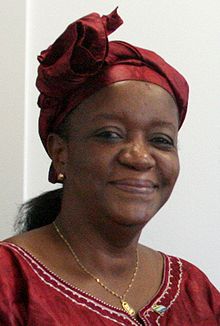 Ms. Zainab Hawa Bangura, UN Special Representative of the Secretary-General on Sexual Violence in Conflict, USA
Ms. Zainab Hawa Bangura, UN Special Representative of the Secretary-General on Sexual Violence in Conflict, USA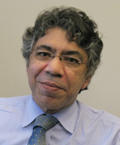 Dr. Octaviano Canuto dos Santos Filho, Vice President and Head of Poverty Reduction and Economic Management Network, The World Bank
Dr. Octaviano Canuto dos Santos Filho, Vice President and Head of Poverty Reduction and Economic Management Network, The World Bank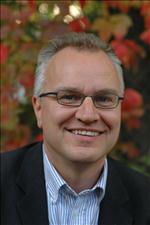 Mr. Kristian Berg Harpviken, Director, Peace Research Institute Oslo (PRIO), Norway
Mr. Kristian Berg Harpviken, Director, Peace Research Institute Oslo (PRIO), Norway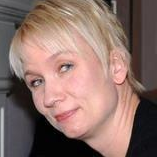 Ms. Lajla Brandt Jakhelln, Deputy Chief of Mission, Royal Norwegian Embassy, USA
Ms. Lajla Brandt Jakhelln, Deputy Chief of Mission, Royal Norwegian Embassy, USA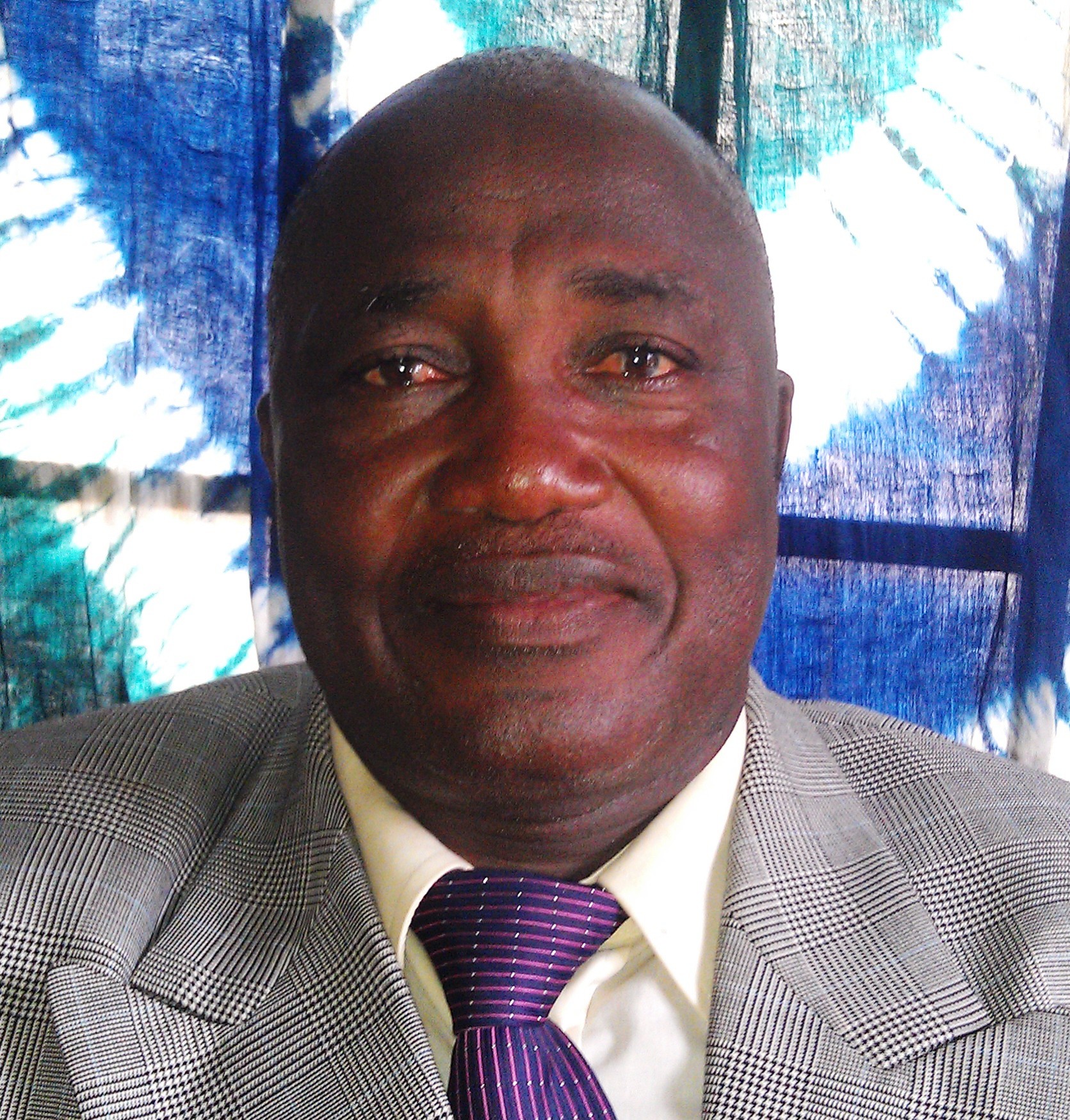 Mr. Tamba David Makieu, National Movement for Emancipation and Progress, Sierra Leone
Mr. Tamba David Makieu, National Movement for Emancipation and Progress, Sierra Leone Mr. Jim Marshall, President, U.S. Institute of Peace, USA
Mr. Jim Marshall, President, U.S. Institute of Peace, USA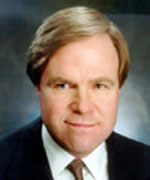 Mr. Joe R Reeder J.D., Chair, Board of Directors, Peace Research Endowment, Norway
Mr. Joe R Reeder J.D., Chair, Board of Directors, Peace Research Endowment, Norway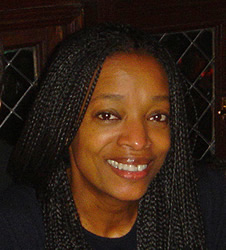 Ms. Patricia Sellers J.D., Special Advisor on International Criminal Law Prosecution Strategies for the International Criminal Court, The Netherlands
Ms. Patricia Sellers J.D., Special Advisor on International Criminal Law Prosecution Strategies for the International Criminal Court, The Netherlands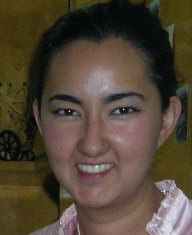 Ms. Layla Sharafi, Technical Specialist in Gender, United Nations Population Fund, USA
Ms. Layla Sharafi, Technical Specialist in Gender, United Nations Population Fund, USA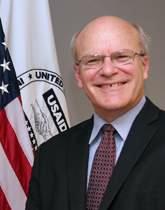 Ambassador Donald Steinberg, Deputy Administrator, U.S. Agency for International Development, USA
Ambassador Donald Steinberg, Deputy Administrator, U.S. Agency for International Development, USA Ambassador Melanne Verveer, Ambassador-at-Large for Global Women's Issues, USA
Ambassador Melanne Verveer, Ambassador-at-Large for Global Women's Issues, USA Nobel Laureate Jody Williams, Chair, Nobel Women's Initiatives & Co-chair, International Campaign to Stop Rape & Gender Violence in Conflict
Nobel Laureate Jody Williams, Chair, Nobel Women's Initiatives & Co-chair, International Campaign to Stop Rape & Gender Violence in Conflict